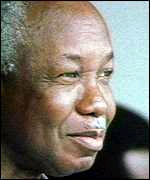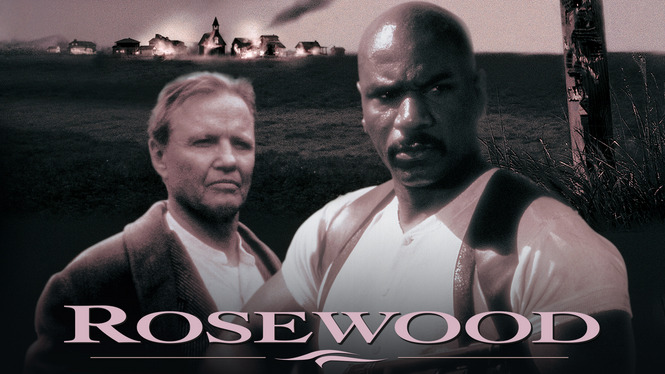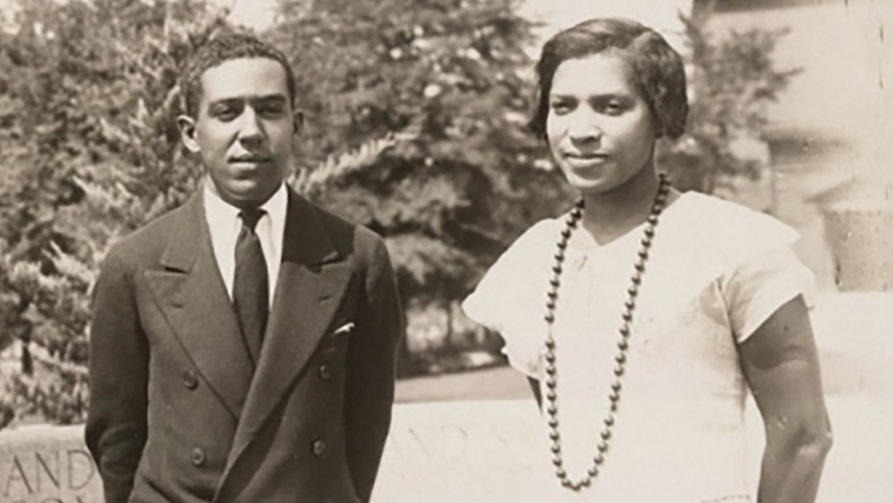
Ujamaa, African Socialism by Julius Nyerere
Socialism, like democracy, is an attitude of mind. In a socialist society it is the socialist attitude of mind, and not the rigid adherence to a standard political pattern, which is needed to ensure that the people care for each other’s welfare.
The purpose of this paper is to examine that attitude. It is not intended to define the institutions which may be required to embody it in a modern society.
In the individual, as in the society, it is an attitude of mind which distinguishes the socialist from the non-socialist. It has nothing to do with the possession or non-possession of wealth. Destitute people can be potential capitalists–exploiters of their fellow human beings. A millionaire can equally be a socialist; he may value his wealth only because it can be used in the service of his fellow men. But the man who uses wealth for the purpose of dominating any of his fellows is a capitalist. So is the man who would if he could!
I have said that a millionaire can be a good socialist. But a socialist millionaire is a rare phenomenon. Indeed he is almost a contradiction in terms. The appearance of millionaires in any society is no proof of its affluence; they can be produced by very poor countries like Tanganyika just as well as by rich countries like the United States of America. For it is not efficiency of production, nor the amount of wealth in a country, which makes millionaires; it is the uneven distribution of what is produced. The basic difference between a socialist society and a capitalist society does not lie in their methods of producing wealth, but in the way that wealth is distributed. While, therefore, a millionaire could be a good socialist, he could hardly be the product of a socialist society.
Since the appearance of millionaires in a society does not depend on its affluence, sociologists may find it interesting to try and find out why our societies in Africa did not, in fact, produce any millionaires–for we certainly had enough wealth to create a few. I think they would discover that it was because the organization of traditional African society–its distribution of the wealth it produced–was such that there was hardly any room for parasitism. They might also say, of course, that as a result of this Africa could not produce a leisured class of landowners, and therefore there was nobody to produce the works of art or science which capitalist societies can boast. but works of art and the achievements of science are products of the intellect–which, like land, is one of God’s gifts to man. And I cannot believe that God is so careless as to have made the use of one of His gifts depend on the misuse of another!
Defenders of capitalism claim that the millionaire’s wealth is the just reward for his ability or enterprise. But this claim is not borne out of the facts. The wealth of the millionaire depends as little on the enterprise or abilities of the millionaire himself as the power of a feudal monarch depended on his own efforts, enterprise, or brain. Both are users, exploiters, of the abilities and enterprise of other people. Even when you have an exceptionally intelligent and hard-working millionaire, the difference between his intelligence, his enterprise, his hard work, and those of other members of society, cannot possibly be proportionate to the difference between their “rewards.” There must be something wrong in a society where one man. however hard-working or clever he may be, can acquire as great a “reward” as a thousand of his fellows can acquire them.
Acquisitiveness for the purpose of gaining power and prestige is unsocialist. In an acquisitive society wealth tends to corrupt those who possess it. it tends to breed in them a desire to live more comfortably than their fellows, to dress better, and in every way to outdo them. They begin to feel they must climb as far above their neighbors as they can. the visible contrast between their own comfort and the comparative discomfort of the rest of society becomes almost essential to the enjoyment of their wealth, and this sets off the spiral of personal competition–which is then anti-social.
Apart from the anti-social effects of the accumulation of personal wealth, the every desire to accumulate it must be interpreted as a vote of “no confidence” in the social system. For when a society is so organized that it cares about its individuals, then, provided he is willing to work, no individual within that society should worry about what will happen to him tomorrow if he does not hoard wealth today. Society itself should look after him, or his widow, or his orphans. This is exactly what traditional African society in doing. Both the “rich” and the “poor” individual were completely secure in African society.
Natural catastrophe brought famine, but it brought famine to everybody–“poor” or “rich.” Nobody starved, either of food or of human dignity, because he lacked personal wealth; he could depend on the wealth possessed by the community of which he was a member. That was socialism. That is socialism. There can be no such thing as acquisitive socialism, for that would be another contradiction in terms. Socialism is essentially distributive. Its concern is to see that those who sow reap a fair share of what they sow.
The production of wealth, whether by primitive or modern methods, requires three things. First, land. God has given us the land, and it is from the land that we get the raw materials which we reshape to meet our needs. secondly, tools. We have found by simple experience that tools do help! So we make the hoe, the axe, or the modern factory or tractor, to help us to produce wealth–the good we need. And thirdly, human exertion–or labor. We don’t need to read Karl Marx or Adam Smith to find out that neither the land nor the hoe actually produces wealth.
And we don’t need to take degrees in Economics to know that neither the worker not the landlord produces land. land is God’s gift to man–it is always there. but we know, still without degrees in economics, that the axe and the plough were produced by the laborer. Some of our more sophisticated friends apparently have to undergo the most rigorous intellectual training simply in order to discover that stone axes were produced by that ancient gentleman “Early Man” to make it easier for him to skin the impala he had just killed with a club, which he had also made for himself!
In traditional African society everybody was a worker. there was no other way of earning a living for the community. Even the Elder, who appeared to be enjoying himself without doing any work and for whom everybody else appeared to be working, had, in fact, worked hard all his younger days. The wealth he now appeared to possess was not his, personally; it was only “his” as the elder of the group which had produced it. He was a guardian. the wealth itself gave him neither power nor prestige. the respect paid to him by the young was his because he was older than they, and had served his community longer; and the “poor” Elder enjoyed as much respect in our community as the “rich” Elder.
When i say that in traditional African society everybody was a worker, I do not use the word “worker” simply as opposed to “employer” but also as opposed to “loiterer” or “idler.” One of the most socialistic achievements of our society was the sense of security it gave to its members, and the universal hospitality on which they could rely. But it is too often forgotten, nowadays, that the basis of this great socialistic achievement was this: that it was taken for granted that every member of society–barring only the children and the infirm–contributed his fair share of effort towards the production of its wealth.
Not only was the capitalist, or the landed exploiter, unknown to traditional African society, but we did not have that other form of modern parasite–the loiterer, or idler, who accepts the hospitality of society as his “right” but gives nothing in return! Capitalistic exploitation was impossible. Loitering was an unthinkable disgrace.
African way of life, and, quite rightly, take a pride in maintaining the tradition of hospitality which is so great a part of it, might do well to remember the Swahili saying: “Mgeni siku mbili; siku ya tatu mpe jembe”–or, in English, “Treat your guest as a guest for two days; on the third day give him a hoe! In actual fact, the guest was likely to ask for the hoe even before his host had to give him one–for he knew what was expected of him, and would have been ashamed to remain idle any longer. Thus, working was part and parcel, was indeed the very basis and justification of his socialist achievement of which we are so justly proud.
There is not such thing as socialism without work. A society which fails to give its individuals the means to work, or having given them the means of work, prevents them from getting a fair share of the products of their own sweat and toil, needs putting right. Similarly, an individual who can work–and his provided by society with the means to work– but does not do so, is equally wrong. He has no right to expect anything from society because he contributes nothing to society.
The other use of the word “worker,” in its specialized sense of “employee” as opposed to “employer,” reflects a capitalistic attitude of mind which was introduced into Africa with the coming of colonialism and is totally foreign to our own way of thinking. In the old days the African had never aspired to the possession of personal wealth for the purpose of dominating any of his fellows. He had never had laborers or “factory hands” to do his work for him.
But then came the foreign capitalists. they were wealthy. they were powerful. and the African naturally started wanting to be wealthy too. There is nothing wrong in our wanting to be wealthy; not is it a bad thing for us to want to acquire the power which wealth brings with it. But it most certainly is wrong if we want the wealth and the power so that we can dominate somebody else.
Unfortunately there are some of us who have already learned to covet wealth for that purpose, and who would like to use the methods which the capitalist uses in acquiring it. That is to say, some of us would like to use, or exploit, our brothers for the purpose of building up our own personal power and prestige. this is completely foreign to us, and it is incompatible with the socialist society we want to build here.
Our first step, there fore, must be to re-educate ourselves; to regain our former attitude of mind. In our traditional African society we were individuals within a community. We took care of the community, and the community took care of us. we neither needed nor wished to exploit our fellow men.
And in rejecting the capitalist attitude of mind which colonialism brought into Africa, we must reject also the capitalist methods which go with it. One of these is the individual ownership of land. To us in Africa land was always recognized as belonging to the community. Each individual within our society had a right to the use of land, because otherwise he could not earn his living and one cannot have the right to life without having the right to some means of maintaining it. But the African’s right to land was simply the right to use it: he had no other right to it, nor did it occur to him to try and claim one.
The foreigner introduced a completely different concept, the concept of land as a marketable commodity. According to this system, a person could claim a piece of and as his own private property whether he intended to use it or not. I could take a few square miles of land, call them “mine,’ and then go off to the moon. All I had to do to gain a living from “my” land was to charge a rent to the people who wanted to use it. If this piece of land was in an urban area I had no need to develop it at all; I could leave it to the fools who were prepared to develop all the other pieces of land surrounding “my” piece, and in doing automatically to raise the market value of mine.
Then I could come down from the moon and demand that these fools pay me through their noses for the high value of “my” land; a value which they themselves had created for me while I was enjoying myself on the moon! Such a system is not only foreign to us, it is completely wrong. landlords, in a society which recognizes individual ownership of land, can be, and usually are, in the same class as the loiterers I was talking about: the class of parasites.
We must not allow the growth of parasites here in Tanganyika. The TANU government must go back to the traditional African custom of land holding. That is to say, a member of society will be entitled to a piece of land on condition the he uses it. Unconditional, or “freehold,” ownership of land (which leads to speculation and parasitism) must be abolished. We must, as I have said, regain our former attitude of mind–our traditional African socialism–and apply it to the new societies we are building today. TANU has pledged itself to make socialism the basis of its policy in every field. The people of Tanganyika have given us their mandate to carry out that policy, by electing a TANU government to lead them. So the government can be relied upon to introduce only legislation which is in harmony with socialist principles.
But, as I said at the beginning, true socialism is an attitude of mind. It is therefore up to the people of Tanganyika–the peasants, the wage-earners, the students, the leaders, all of us–to make sure that this socialist attitude of mind is not lost through the temptations to personal gain (or to the abuse of positions of authority) which may come our way as individuals, or through the temptation to look on the good of the whole community as of secondary importance to the interests of our own particular group.
Just as the leader, in our former society, was respected for his age and his service to the community, so, in our modern society, this respect for age and service will be preserved. And in the same way as the “rich” elder’s apparent wealth was really only held by him in trust for his people, so, today, the apparent extra wealth which certain positions of leadership may bring to the individuals who fill them, can be theirs only in so far as it is necessary aid to the carrying out of their duties. It is a “tool” entrusted to them for the benefit of the people they serve. it is not “theirs” personally; and they may not use any part of it as a means of accumulating more for their own benefit, nor as an “insurance” against the day when they no longer hold the same positions. That would be to betray the people who entrusted it to them. If they serve the community while they can, the community must look after them when they are no longer able to do so.
In tribal society, the individuals or the families within a tribe were ‘rich” or “poor’ according to whether the whole tribe was rich or poor. If the tribe prospered, all the members of the tribe shared in its prosperity. Tanganyika, today, is a poor country. The standard of living of the masses of our people is shamefully low. But if every man and woman in the country takes up the challenge and works to the limit of his or her ability for the good of the whole society, Tanganyika will prosper; and that prosperity will be shared by all her people.
But it must be shared. The true socialist may not exploit his fellows. so that if the members of any group within our society are going to argue that, because they happen to be contributing more to the national income than some other groups, they must therefore take for themselves a greater share of the profits of their own industry than they actually need; and if they insist on this in spite of the fact that it would mean reducing their group’s contribution to the general income and thus slowing down the rate at which the whole community can benefit, then that group is exploiting (or trying to exploit) its fellow human beings. It is displaying a capitalistic attitude of mind.
There are bound to be certain groups which, by virtue of the “market value” of their particular industry’s products, will contribute more to the nation’s income than others. But the others may actually be producing goods or services which are of equal, or greater, intrinsic value although they do not happen to command such a high artificial value. for example, the food produced by the peasant farmer is of greater social value than the diamonds mined at Mwadui. But the mine-workers of Mwadui could claim quite correctly, that their labor was yielding greater financial profits to the community than that of the farmers. If, however, they went on to demand that they should therefore be given most of that extra profit for themselves, and that no share of it should be spent on helping the farmers, they would be potential capitalists!
This is exactly where the attitude of mind comes in. It is one of the purposes of Trade unions to ensure for the workers a fair share of the profits of their labor. but a “fair” share must be fair in relation to the whole society. If it is a greater than the country can afford without having to penalize some other section of society, then it is not a fair share. Trade Union leaders and their followers, as long as they are true socialists, will not need to be coerced by the government into keeping their demands within the limits imposed by the needs of society as a whole. Only if there are potential capitalists amongst them will the socialist government have to step in and prevent them from putting their capitalist ideas into practice!
As with groups, so with individuals. There are certain skills, certain qualifications, which, for good reasons, command a higher rate of salary for their possessors than others. But, here again, the true socialist will demand only that return for his skilled work which he knows to be a fair one in proportion to the wealth or poverty of the whole society to which he belongs. He will not, unless he is a would-be capitalist attempt to blackmail the community by demanding a salary equal to that paid to his counterpart in some far wealthier society.
European socialism was born of the Agrarian Revolution and the Industrial Revolution which followed it. The former created the “landed” and the “landless” classes in society; the latter produced the modern capitalist and the industrial proletariat.
These two revolutions planted the seeds of conflict within society, and not only was European socialism born of that conflict, but its apostles sanctified the conflict itself into a philosophy. Civil war was no longer looked upon as something evil, or something unfortunate, but as something good and necessary. As prayer is to Christianity or to Islam, so civil war (which they call “class war”) is to the European version of socialism–a means inseparable from the end. Each becomes the basis of a whole way of life. The European socialist cannot think of his socialism without its father–capitalism!
Brought up in tribal socialism, I must say, I find this contradiction quite intolerable. it give capitalism a philosophical status which capitalism neither claims nor deserves. For it virtually says “Without capitalism, and the conflict which capitalism creates within society, there can be no socialism!” This glorification of capitalism by the doctrinaire European socialists, I repeat, I find intolerable.
African socialism, on the to her hand, did not have the “benefit” of the Agrarian Revolution or the Industrial Revolution. it did not start from the existence of conflicting “classes” in society. Indeed I doubt if the equivalent for the word “class” exists in any indigenous African language; for language describes the ideas of those who speak it, and the idea of “class” or “caste” was nonexistent in African society.
The foundation, and the objective, of African socialism is the extended family. The true African socialist does not look on one class of men as his brethren and another as his natural enemies. He does not form an alliance with the “brethren” for the extermination of the “non-brethren.” He rather regards all men as his brethren–as members of his ever extending family. that is why the first article of TANU’s creed is “Binadamu wote ni ndugu zangu, na Afrika ni moja.” If this had been originally put in English, it could have been “I believe in Human Brotherhood and the Unity of Africa.”
“Ujamaa,” then, or “familyhood,” describes our socialism. It is opposed to capitalism, which seeks to build a happy society on the basis of the exploitation of man by man; and it is equally opposed to doctrinaire socialism which seeks to build its happy society on a philosophy of inevitable conflict between man and man.
We, in Africa, have no more need of being “converted” to socialism than we have of being “taught” democracy. Both are rooted in our own past–in the traditional society which produced us. Modern African socialism can draw from its traditional heritage the recognition of “society” as an extension of the basic family unit. But it can no longer confine the idea of the social family within the limits of the tribe, nor, indeed, of the nation. For no true African socialist can look at a line drawn on a map and say, “The people on this side of that line are my brothers, but those who happen to live on the other side of it can have no claim on me.” Every individual on this continent is his brother.
It was in the struggle to break the grip of colonialism that we leaned the need for unity. We came to recognize that the same socialist attitude of mind which, in the tribal days, gave to every individual the security that comes of belonging to a widely extended family, must be preserved within the still wider society of the nation. But we should not stop there. our recognition of the family to which, we all belong must be extended yet further–beyond the tribe, the community, the nation, or even the continent–to embrace the whole society of mankind. this is the only logical conclusion for true socialism.









